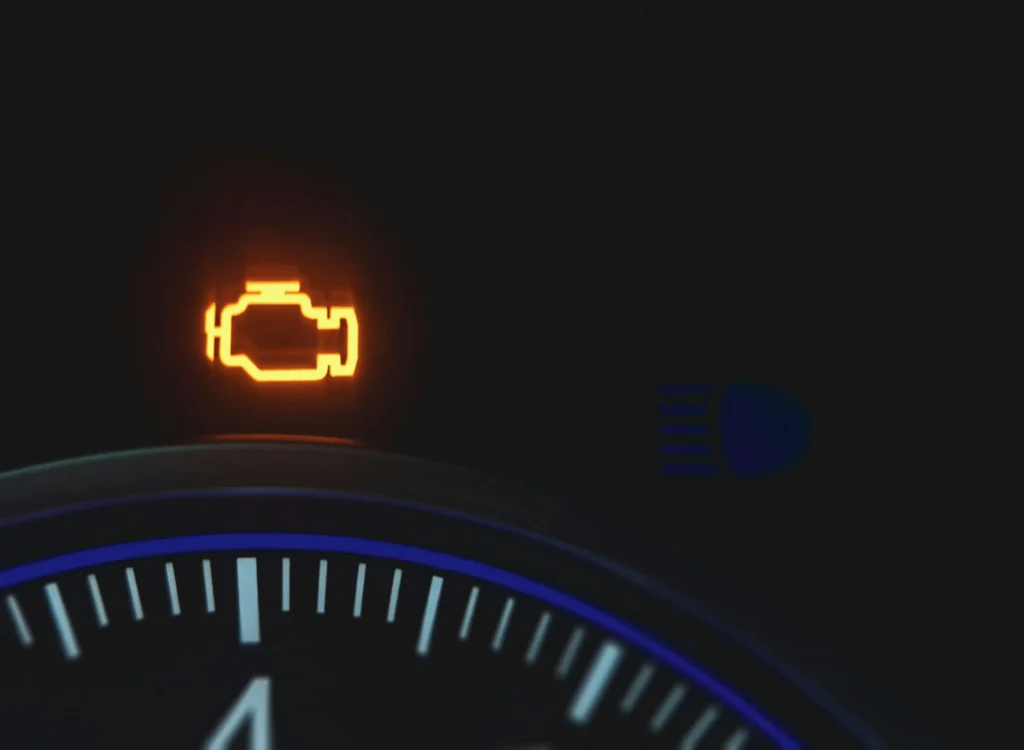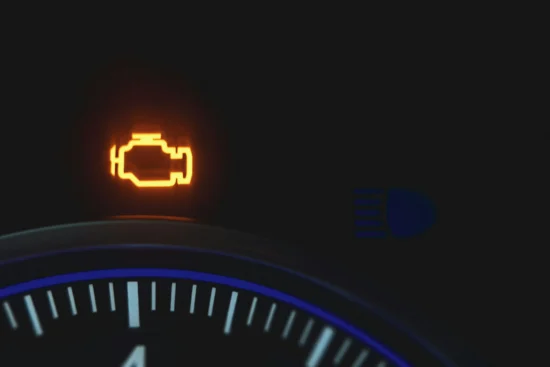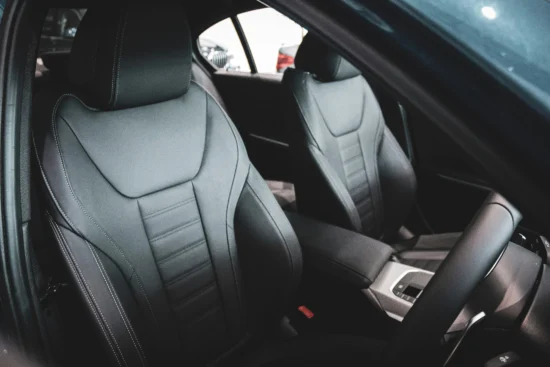
Table of Contents
Why Is My Check Engine Light Blinking

Why Is My Check Engine Light Blinking?
Introduction to the Check Engine Light
Ever been driving down the road when suddenly your dashboard lights up with that little orange engine icon? Yep, the dreaded check engine light. But what does it really mean?
What the Light Actually Means
The check engine light is your car’s way of saying, “Hey, something’s wrong!” It’s part of your vehicle’s onboard diagnostics system (OBD-II), which monitors engine performance, emissions, and more.
Solid vs. Blinking — What’s the Difference?
Here’s the thing: a solid check engine light means something is wrong, but it’s not an emergency. A blinking check engine light? That’s a 911 call from your engine. It usually signals a severe misfire that can damage your catalytic converter or even your entire engine if ignored.
Top Reasons Why Your Check Engine Light is Flashing
Engine Misfire
This is the #1 culprit. A misfire means one of your engine’s cylinders isn’t firing properly, disrupting the combustion process. The result? Reduced power, rough driving, and potential long-term damage.
Ignition Coil Issues
The ignition coil sends voltage to your spark plugs. If it’s faulty, it messes up the entire ignition system. You’ll feel it — your car might jerk or stall.
Faulty Spark Plugs or Wires
Old, worn-out spark plugs or cracked wires can’t ignite the fuel-air mixture efficiently, causing — you guessed it — misfires.
Fuel System Malfunction
Too much or too little fuel going into the combustion chamber can trigger a misfire. Faulty fuel injectors or a bad fuel pump might be to blame.
Emission Control Problems
The catalytic converter or oxygen sensors might be failing, causing increased emissions and reduced performance. A blinking light often means it’s time to replace one of these components.
What Happens if You Ignore a Blinking Check Engine Light?
Immediate Damage to Catalytic Converter
Your catalytic converter filters toxic gases from your exhaust. A misfire can flood it with unburned fuel, which burns inside the converter and causes it to overheat and fail — a costly fix.
Risk of Breakdown
Driving with a blinking light puts stress on your engine and other components. The longer you wait, the more expensive (and dangerous) the damage becomes.
Diagnosing the Problem
Onboard Diagnostic (OBD-II) Scanner
An OBD-II scanner reads trouble codes from your car’s computer. Plug it in under the dashboard and you’ll get a code like P0301 — which could indicate a cylinder 1 misfire.
Professional Diagnostic Services
Not a gearhead? That’s okay. Mechanics have advanced diagnostic tools and experience to quickly pinpoint the issue and get you back on the road safely.
What to Do When Your Check Engine Light Starts Blinking
Pull Over Safely
As soon as you notice the blinking, pull over. Continuing to drive could make things worse — fast.
Reduce Engine Load
If you can’t pull over immediately, ease off the gas and try to keep the RPMs low. No racing, no heavy acceleration.
Get Immediate Help
Call roadside assistance or tow your car to a trusted mechanic. Don’t risk driving with a blinking light unless you absolutely have to.
Why Is My Check Engine Light Blinking

DIY Troubleshooting for Car Enthusiasts
Visual Inspection
Pop the hood. Look for loose wires, cracked hoses, or anything that seems out of place. You might spot a simple fix.
Checking for Loose Connections
Sometimes it’s just a loose spark plug wire or a corroded battery terminal. Tighten everything up and see if that helps.
Cost of Repairs for Common Issues
Misfires and Spark Plug Replacement
Fixing a misfire might just require new spark plugs and wires — typically $100–$300 depending on your car.
Catalytic Converter Replacement
If you’ve been driving too long with the light blinking, this repair can set you back $1,000–$2,500. Ouch.
How to Prevent Future Check Engine Light Problems
Regular Maintenance
Stick to your maintenance schedule — oil changes, spark plug replacements, fuel system cleanings. It makes a huge difference.
Quality Fuel and Oil
Cheap gas can clog your injectors. Dirty oil can ruin your engine. Spend a little more now to save a lot later.
When It’s Safe to Keep Driving (and When It’s Not)
Blinking = Immediate Danger
A blinking light means stop immediately unless you’re in a super safe situation to continue driving briefly to a mechanic.
Solid Light = Caution
You can keep driving (carefully) with a solid light, but don’t delay getting it checked.
Myths About the Check Engine Light
“It’ll Go Away on Its Own”
Wishful thinking. It might turn off for a bit, but the problem is still there.
“It’s Just the Gas Cap”
Sure, a loose gas cap can cause a solid check engine light, but blinking? Nope. That’s something much more serious.
Technology and Check Engine Lights
How Modern Cars Self-Monitor
Cars today are smarter than ever, with dozens of sensors constantly monitoring performance. When something goes off track, your car knows.
Apps and Bluetooth OBD Scanners
You don’t have to be a mechanic to understand your car anymore. Affordable scanners and smartphone apps make diagnostics easier than ever.
The Emotional Toll of That Dreaded Light
Panic vs. Preparedness
Let’s be honest — seeing that light blink is stressful. But staying informed and knowing what to do turns panic into preparedness.

Why Is My Check Engine Light Blinking Conclusion
A blinking check engine light is your car screaming for help. It’s not just a suggestion — it’s a flashing red flag telling you to stop driving and figure out what’s wrong. Whether it’s a misfire, ignition issue, or something else, early action is always cheaper (and safer) than waiting. Don’t ignore the signs — your engine, your wallet, and your peace of mind will thank you.
Why Is My Check Engine Light Blinking FAQs
1. Can I drive my car with a blinking check engine light?
Not recommended. It’s often a sign of a serious issue that can cause engine or catalytic converter damage.
2. What’s the most common reason for a blinking check engine light?
Engine misfire — typically due to spark plug or ignition system issues.
3. Will my check engine light reset itself?
If the issue is resolved, the light might turn off after several drive cycles, but it’s best to clear the codes manually after diagnosis.
4. Is it safe to diagnose a blinking check engine light on my own?
Yes, if you have an OBD-II scanner and basic knowledge. But if the car is running rough, play it safe and call a pro.
5. Can a low battery cause the check engine light to blink?
Unlikely. A weak battery might trigger a solid check engine light, but not typically a blinking one.





Leave a Reply